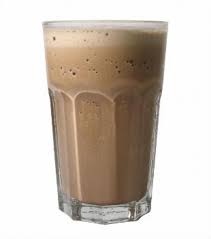How Much Protein Should You Consume A Day
Protein is a crucial factor when it comes to human nutrition; an absolute essentiality for maintaining good health. Protein is required for healthy hair, making blood, connective tissues, and it’s also needed to make enzymes, antibodies and much more.
Although we commonly see athletes and body builders eat healthy foods containing extra protein; the message being passed around is that our protein intake is too much.
The Recommended Dietary Allowance (RDA) in relation to protein intake is about 0.8 grams for every kilogram of body weight. The RDA is the basic nutritional requirement for any particular nutrient; the smallest quantity you need to prevent you from becoming sick. This has got nothing to do with how much you should eat every day.
Our muscles consist of 25% protein, 75% water and stored glycogen (in the form of carbohydrates). Many people have the well-formed opinion that eating enough protein is essential for the maintenance of lean mass and to support muscle growth. The question is: how much is the right amount?
Recommended Daily Protein Intake
A few of the best recommendations would be:
- The American Dietetic Association (ADA) gives an RDA level of 0.36g for every pound of body weight. This means that an 180lb male would only require a daily intake of 65grams of protein. It should be noted that the ADA’s recommendations are referring to sedentary individuals and not the active ones who will obviously require a higher protein RDA.
- According to the National Strength and Conditioning Association (NSCA), people who are physically active should have a daily intake of about 0.4 to 0.6g for every pound of their bodyweight with competitive athletes requiring as much as 0.8g. The overall reasoning being that the more active you are the more protein requirement you will have.
- However, Dr. Donald Layman of the University of Illinois states that there is no harm in adults increasing the daily recommended protein intake of 56 grams as apart from acting as a muscle supplement, protein reduces hunger and therefore safeguards against problems leading to obesity, heart disease, and diabetes.
- Dr. Tarnopolsky of McMaster University in Hamilton, Ontario is of the opinion that strong athletes live on 0.77 grams for every pound of body weight. This represents 139 grams for a man of 180lb.
- Men who are exercising for 5 days or more on a weekly basis for about an hour or so would require 0.55grams per pound; whereas those who exercise for less than that would need about 0.45 grams per pound.
- However, it is still believed that the exact amount for anyone will depend on that person’s goals, genetics, and diet; aiming for the specified targets should be adequate for most people.
An 180lb man is considered relatively fit to have a daily protein intake of between 108g and 198g for muscle build-up.
- If you consider yourself too bulky and are trying to reduce your body fat, it is advisable to achieve your target bodyweight in protein intake grams. This means that for a man who weighs 225lbs and wants to go down to 180lbs through proper workout and diet; he should have a daily intake of 180 grams of protein. In addition to this, you should aim to reduce the intake of carbohydrates and fats in your diet.
- In order to gain weight, it would be advisable increase your protein intake (as well as fats and carbohydrates) to boost up your calories. Although it is a common opinion that eating extra protein leads to a waste as our body stores in the form of fat and excretes what is not useful; for trying to increase our size and weight, we simply need to have extra calories. Don’t worry, just go ahead and eat!
Protein Equality in Your Diet
What’s the best way of protein consumption? Natural protein comes in two types: complete proteins (consisting of all necessary amino acids) and incomplete proteins (comprising of some of the important amino acids). We get our complete proteins mainly from animal sources (food like chicken, turkey, beef, fish and seafood, etc) as well as hemp seeds, soy, dairy products, etc. we get our incomplete protein basically from plant sources: vegetables, fruit, legumes, nuts, grains, seeds, etc.
It is generally believed that building muscle is easier done by eating more meat; you can easily fulfill your protein requirements as a vegetarian too. All you have to do is to make sure you’re consuming enough calories and eating a variety of foods every day. Good sources of proteins for vegetarians include legumes such as lentils and beans.
It is generally believed that it’s important to mix various plant foods in order to attain a complete protein. There’s no need to be overly conscious about this if you’re managing to eat different types of food on a daily basis. The reason for this is that the human body already has a quantity of amino acids which it uses to improve dietary proteins.
So, it doesn’t matter if you’re aiming to build muscle, lose weight, or working to become an athlete; your daily protein intake in grams should be in accordance to your bodyweight in order to fulfill your bases. Don’t believe this to be an exact science; consuming a little more or a little less can’t be harmful to your health. In fact, it would be better to eat a little more than less to aid in muscle growth, recovering from over-exercising and hunger satisfaction.
By Kevin Angileri
